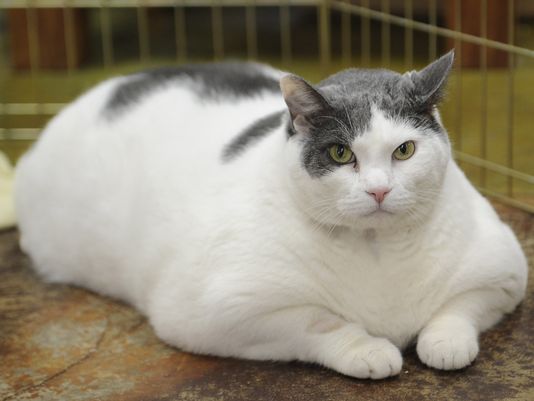Is your pet dog/cat piling on those undesirable kilos? It’s a wakeup call, before the weight begins to get the better of your furry companion. Over Eating and lack of physical activity are the underlying offenders in a scenario of obesity. In fact the disparity in calorie intake and the amount of fuel spent through exercise equals to weight gain, is similar to what is experienced by mortals as well. Below are tips to prevent cat/dog weight gain.
The calorie game:
Intake of calories may remain the same but the amount spent decreases with age. A pet owner must be mindful of a simple equation that is Calorie and age is inversely proportional. If your older dog is comparatively less playful and active then the food intake must be monitored accordingly. When a dog is younger it is more active, but with age it may become lethargic hence continuing the same quantity of diet will most definitely lead to weight gain.
Size does matter, in this context. A small breed pooch’s daily intake ranges between 185 to 370 calories. Large sized dogs may need 1100 to 1700 calories a day.
A Simple way to calculate a pet’s daily calorie need = (30xpet’s weight in kilograms) +70.
Type of breed matters too! Pugs, Beagles and Labradors are susceptible to the problem of obesity.
Does your canine buddy weigh more than 10 to 15 percent of its standard body weight? It’s time for your vet to step in and take charge.
How to feed the pet rightly
Measure the amount of dry food before filling it in the pet food bowl. It is advisable to follow your vet’s advice regarding your pet’s daily food requirements instead of following the instructions on the packaging as they are approximations that may not suit your furry paw.
Also feed the pet cat/dog frequent small meals in a day. One mistake pet parents commit is keeping the food bowl stuffed with food all day, this results in the pet gaining weight as it may develop the habit of eating out of boredom rather than real hunger.
Apart from Portion management, it is important to take note of the top ingredient present in the pet food. Grains or meat byproducts as the top ingredient in the pet food may lead to unwelcome increase in weight.
Too many Treats & Weight gain go hand in hand
High fat and sodium content is what most treats are made of! Doesn’t sound like a healthy option, does it? Often treats are used in training procedures and rewarding positive behaviors in pets. Their share should be limited between 5 to 10 percent of the pet’s daily food intake. You can shop online for nutritional treats that add on to health benefits and not unnecessary calories.
Often pets begin to drool over upon smelling/seeing human food. As a natural response to their yearning, pet owners offer table scraps that can lead to health complications and fatness.
Lack of Play and Constructive activity
Is your pet exposed to sufficient exercise? How many times a day you walk your dog? How often do you play with your pet cat? Yes, as the master you are in charge of your pet’s well being and physical health. Ensure your pet is involved in adequate physical activity on an everyday basis.
Medical conditions resulting in Obesity
Sometimes in spite of a balanced diet and sufficient physical activity your pet may continue to gain excessive weight. This in all probability occurs due to certain illnesses and hormonal imbalances. Therefore it is important to visit the vet with your feline or canine companion before you put it on a diet. A thorough examination and discussion with the doctor can help diagnose and cure the real cause behind weight gain. Cushing’s disease, fluid retention, hypothyroidism among other causes, are to be blamed for a cat’s or dog’s weight gain.
Resource Box:
http://www.petmd.com/dog/nutrition/evr_multi_medical_causes_behind_weight_gain


